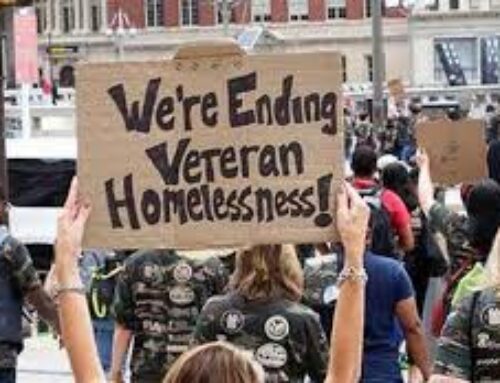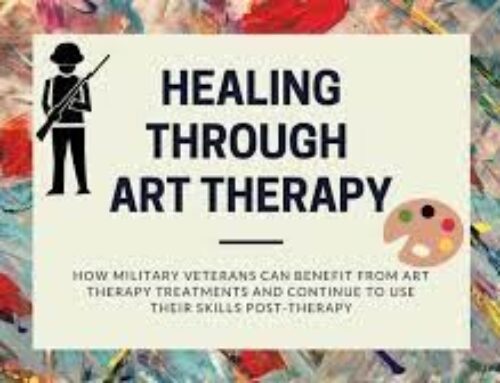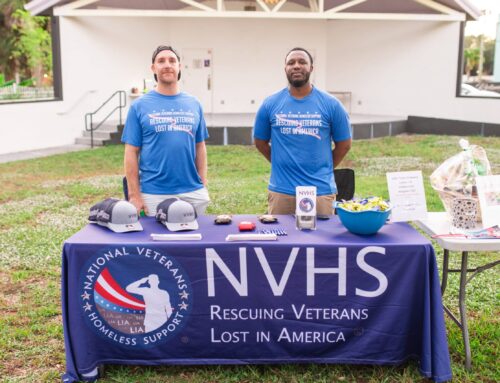Veterans and Public Policy
Reducing homelessness among veterans is a huge undertaking. While the efforts of individuals and grassroots organizations are essential to this cause, they’re not enough. To achieve lasting change will require that public policies affecting veterans are also taken into consideration, and that legislation, funding decisions, and infrastructure prioritize quality of life for former service members.
The list of policies that affect veterans is long, complex, and constantly in flux. Moreover, many state- and local-level policies vary depending on where you live. While it’s always a good idea to stay informed on policymaking conversations in your immediate area, it’s also important to maintain an awareness of national policies. Below are a few of the biggest current issues within the realm of public policy for veterans:
- Healthcare Coverage and Disability Compensation through the Department of Veterans’ Affairs.
Although the number of veterans has declined in recent years, the cost of veteran healthcare to the VA has increased. There are a lot of factors influencing these trends—among them, the growing medical needs of aging veterans and the rising price of healthcare in general. But even in spite of expansions of the VA’s budget, recent years have still seen many calls for reform in terms of the way the organization handles eligibility and disability compensation, and its move toward the privatization of healthcare for veterans. In particular, the VA has recently come under fire for its inadequate recognition and treatment of the effects of toxic exposure among post-9/11 veterans. - Suicide and Access to Mental Health Care Among Veterans.
According to estimates released in 2021, around 20 veterans die by suicide each day. To address this issue, veteran advocates are calling for improved and simplified access to mental health care, as well as better training for mental healthcare providers in dealing with veteran-specific issues. Other aspects of this issue are the lack of provider capacity and the persistence of stigmatizing attitudes toward mental health disorders in military culture. - Veteran Reentry into Civilian Society.
The transition back to civilian life isn’t always smooth, and many new veterans experience problems with housing, employment, and other issues. What’s more, even veterans with access to programs like the GI Bill aren’t aware of how to utilize those resources. Policy initiatives to subsidize housing, increase employment, and conduct outreach to veterans who are struggling or at risk can help reduce the number of veterans who wind up homeless.
National Veterans Homeless Support seeks to eliminate homelessness among veterans in Central Florida and nationwide. NVHS takes a proactive, intervention-based approach to homelessness by meeting homeless veterans where they are and helping them from there. Through programs like Search and Rescue Outreach, NVHS helps homeless veterans get the supplies they need to survive, connects them with support and resources, and helps them transition off the streets and into temporary or permanent housing. If you’re able, consider supporting our mission by donating or signing on as a volunteer.





